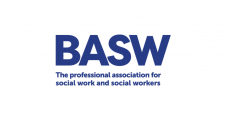Covid plus workforce pressures were a 'perfect storm' for vulnerable children

A “perfect storm” in children’s safeguarding was created when existing workforce pressures combined with the pandemic, BASW’s interim chief executive has said.
Samantha Baron was giving evidence to the UK Covid-19 Inquiry on the impact of the pandemic on children and young people.
She outlined how social distancing added to the complexity of practising in a profession already struggling with high vacancy, sickness and turnover rates.
The tragic death of Finley Boden who was just ten months old when he was killed by his parents during lockdown on Christmas Day 2020, was raised by the inquiry.
Counsel Marlene Cayoun said: “You have highlighted the issue of reduced workforce and spikes in staff sickness as something that inevitably impacted the capacity to safeguard and support the child… Is it your view that this was probably quite a widespread problem during the pandemic?”
Prof Baron answered: “Yes. To some degree it was a perfect storm which was a long time in making around workforce pressures for children and people working with children and families.”
A social worker involved in Finlay’s care was off work for six weeks due to illness. Staff pressures also meant a newly qualified social worker was working on the high risk case.
Prof Baron said: “That would be somebody who was in their first year of practice. To be in your first year of practice with such a complex case when you are meeting your colleagues online, so do not have opportunities for the professional socialization process that you'd normally get by being in an office, contributed quite significantly.”
The case highlighted the need for a ‘named social worker’ in child protection, said Prof Baron.
One of the biggest impacts of Covid was how it had “significantly impaired” social workers carrying out assessments of children and families, she added.
“Assessments predominantly take place where the children live where you are able to observe relationships, the material conditions of the home.
“So to undertake a visit from a doorstep or garden limits your understanding to bring information together.”
Falls in referrals were a “concern” at a time when the pressure on families, including around mental health, substance use and the risk of domestic violence during lockdowns heightened.
“Our members were reporting concerns around unmet need,” said Prof Baron. “We knew the pandemic would have affected pre-existing issues for families and children, and initially that wasn’t being picked up.”
A lack of personal professional equipment (PPE) such as face masks and a lack of guidance was also a major workforce issue.
“There was much more focus on health,” said Prof Baron. “We made six representations to government asking for guidance on the use of PPE and as far as I know never received a reply.
“We were instead dependent on public health guidance, which was directed to health professionals working in community settings.”
Prof Baron criticised the Covid 'easements' which temporarily allowed local authorities to suspend or reduce statutory obligations, such as visiting children in care, during the pandemic.
“Children who are looked after are actually more high risk, with higher level needs. To suspend their right to protect their needs is a serious position to be in.”
She called for the profession to be “recognised as central” in any planning for a future pandemic.
“It was quite clear that social work wasn’t present. There was a lack of understanding about how social work works and how social work is organised.
“It’s about having social workers available at a ministerial level… so they can give guidance and form part of emergency planning systems.”
The full evidence session can be watched on the Inquiry's YouTube channel here.



